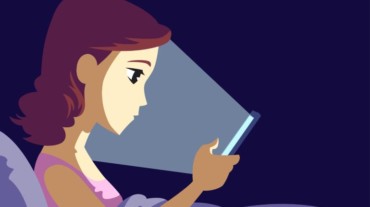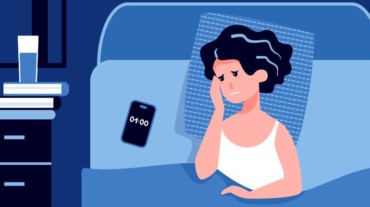
Do you often cozily coop up in your blanket and keep scrolling through your smartphone till sleep knocks you out? Does getting out of bed the next day seems like the biggest struggle ever? A recent study shows that smartphones are one of the main reasons for sleep deprivation.
The correlation between ticking smartphones and bad sleep quality
A whopping 92% Indians check their phones just before going to sleep, said a study on Tuesday which revealed that smartphones have emerged as a major sleep disruptor, adversely affecting the health of people.
Of the 50,000 responses collected for the study, 44% said they indulged in social media and over-the-top (OTT) platforms late into the night, a 2x increase over last year, said the Great Indian Sleep Scorecard (GISS) 2020, an annual study by sleep solutions provider Wakefit.co.
Nearly one third of the respondents acknowledged that avoiding digital devices would improve their quality of sleep.
“We have seen sleep being forsaken for a long time now and people increasingly succumbing to lifestyle pressures. The third edition of the survey sees a rise in addiction to digital devices and sleep is the first casualty of this trend,” Chaitanya Ramalingegowda, Co-founder and Director, Wakefit.co, said in a statement.
Quiz time: Let’s see just how addicted are you to your smartphone? Let this quiz answer that for you
How does sleep deprivation impact our health?
Sleep deprivation has been known to impact immunity, metabolism, and mood, while increasing the chances of chronic lifestyle ailments such as obesity, diabetes, and high blood pressure.

While digital devices formed the majority of the respondents’ cause for staying up late, work-induced stress also ranked high with thirty-three percent attribution.
Compared to last year’s survey, there was also an 80% increase in the number of people who do not go to bed with their partners.
People in the age group between 25-34 showed maximum signs of sleep-related problems, according to the study.
Select Topics of your interest and let us customize your feed.
PERSONALISE NOWThe Great Indian Sleep Scorecard is an ongoing survey and the 2020 edition received over 50,000 responses, recorded from March 1, 2019, to February 29, 2020.
It spans across all Indian cities and records insights across age groups, starting from 18 years.
Also, Listen:
Are you suffering from Insomnia? A diet rich in prebiotics can help you sleep better says study
Here you have it, Ladies! Whenever it’s time to get your late-night beauty sleep just keep your smartphone way out of your reach and enjoy uninterrupted sleep.